Description
ABSTRACT
Imputation of Criminality for Strikes in Domestic Labour Regulations: The Nigerian Experience
Ogbole O. Ogancha*
This article primarily focuses on the idea of criminalisation of strikes. It espouses the concept of a strike; examines the imputation of criminality for strikes in the context of domestic labour regulations; juxtaposes a lawful strike and an unlawful strike; and elucidates how the genre of unlawful strike stimulates the idea of criminalisation of strikes. By drawing cues from international labour standards and global best practices on the discourse of strikes, an uncharted territory of labour jurisprudence revolving around the inherent challenges associated with the intersection of labour law and criminal law in the resolution of trade disputes is explored. The article concludes by providing the basis for continuous interrogation of domestic labour regulations on strikes and the propriety of aligning domestic labour regulations on strikes with international labour standards and global best practices.
Keywords: Strikes, Workers, Workplace, Trade Disputes, Trade Unions.
INTRODUCTION
In many jurisdictions across the globe, a strike is considered a legitimate weapon in the gamut of options open to aggrieved workers and workers’ trade unions in the quest to standardise terms and conditions of work. This feat is not without a price. The recognition of strikes and the right to strike results from many years of struggles by workers and workers’ trade unions against decent work deficits, unfair labour practices, and working poverty. These workplace challenges persist in blatant disregard for the constitutional prescription for work conditions to be just and humane in Nigeria. Hence, the declaration of strikes in the workplace. Whereas strike has gained increased recognition with the right to strike almost universally accepted as a legitimate tool in the armoury of workers’ trade unions, some jurisdictions have opted for absolute prohibition of strikes and, in some other cases, restricted prohibition of strikes, through the enactment of legislations imbued with sanctions or penalties for declaring or engaging in strikes. This trend, labelled “criminalisation of a strike,” is a contemporary representation of the rigidity of labour regulations and the extreme intervention of the State in industrial relations. This presents several implications on the ubiquitous quest for the expeditious resolution of trade disputes and the advancement of fundamental freedoms and rights in the workplace. It also implies that striking workers must contend with other challenges aside from the forfeiture of entitlements which is universally accepted as the price a striker must pay. In Nigeria, extant labour regulations on strike are tinted with relics of colonial culture and military styled despotic legislation. Extant labour regulations are primarily formulated without due consultation with labour and are couched in a manner that neither explicitly entrenches nor negates the right to a strike.
* LL.B(Hons), BL, LL.M(Ife), Ph.D (in-view), ACIS. Principal Partner, Ogbole & Partners (Legal Practitioners), and Doctoral Researcher, Faculty of Law, University of Jos Nigeria. Email: og************@***il.com; Phone No.: +234(0)8037953528.

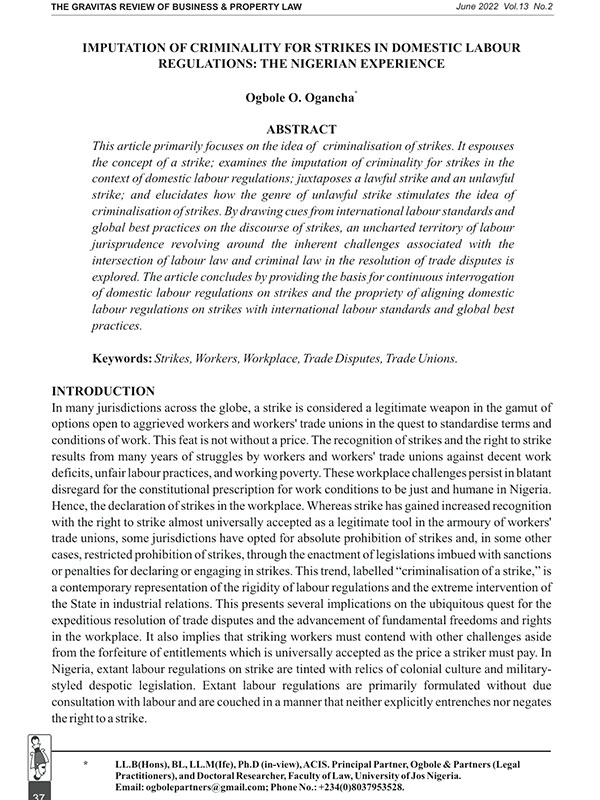
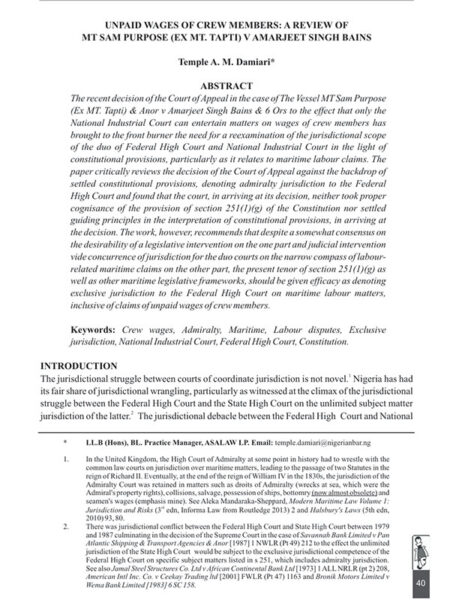
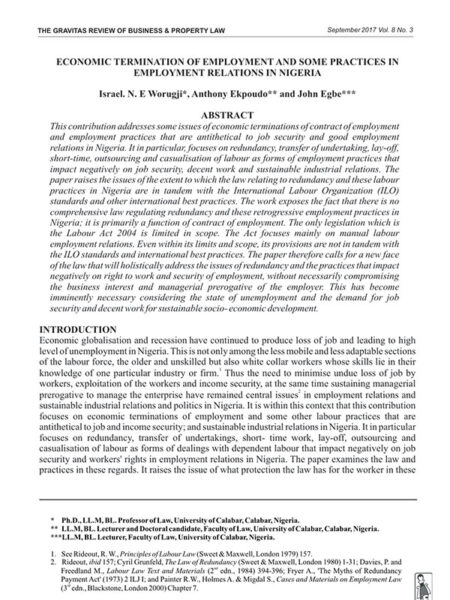
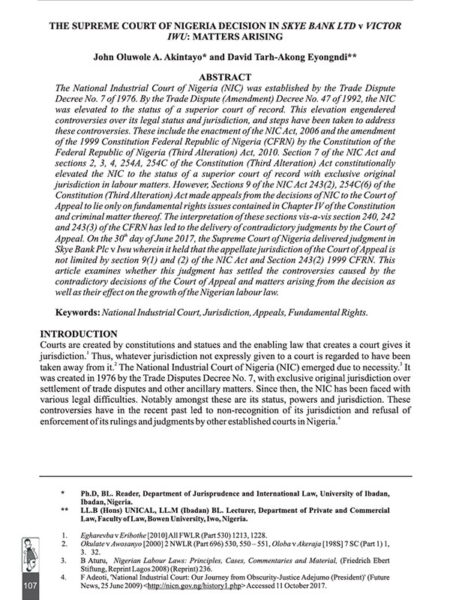
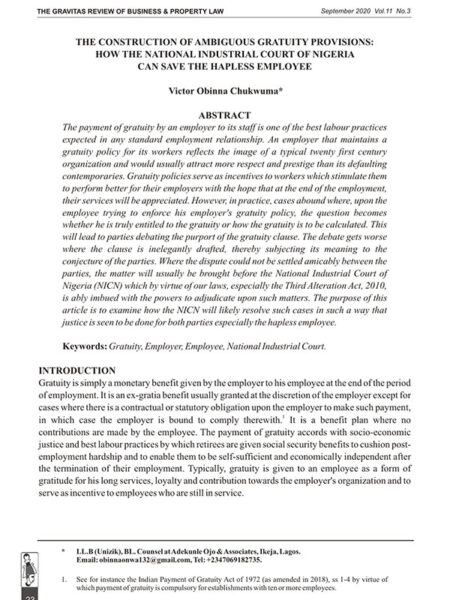


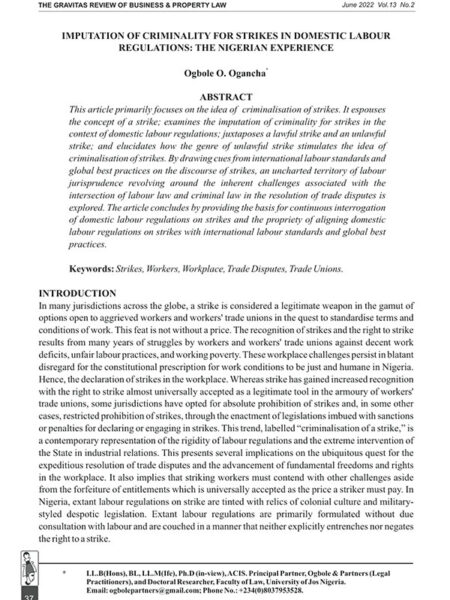
Reviews
There are no reviews yet.